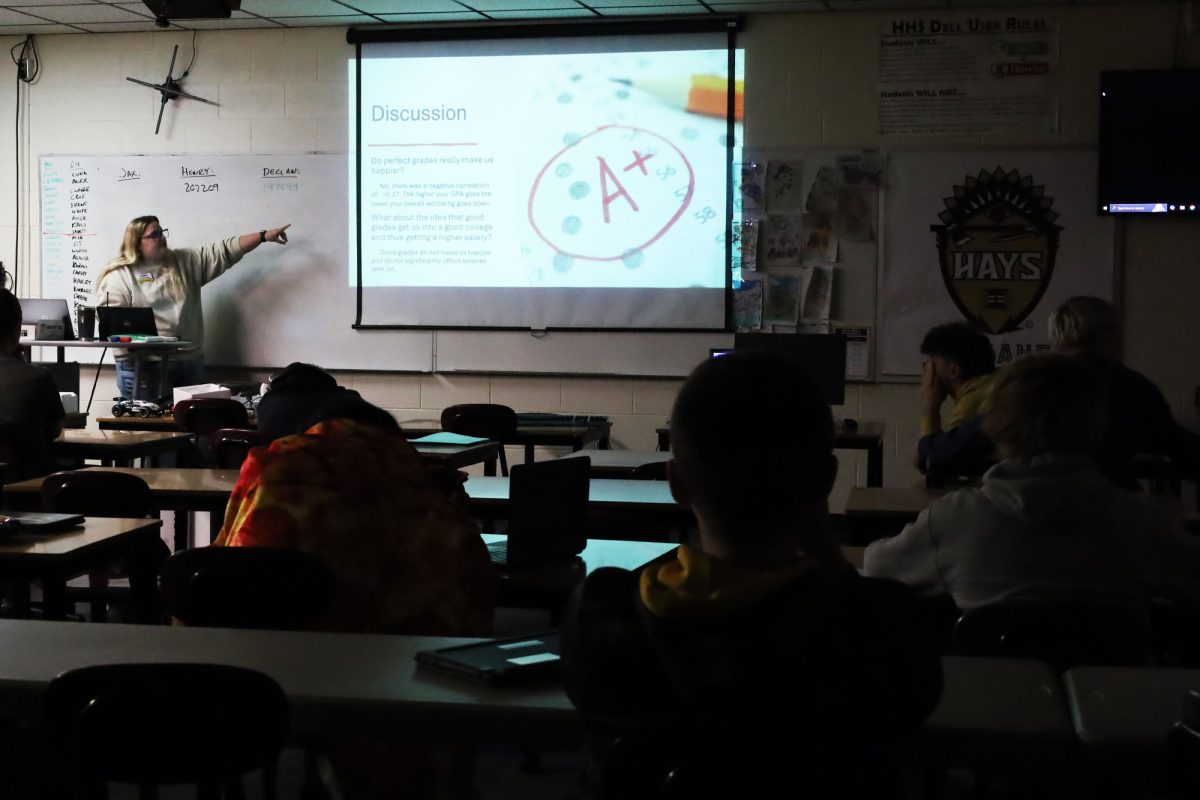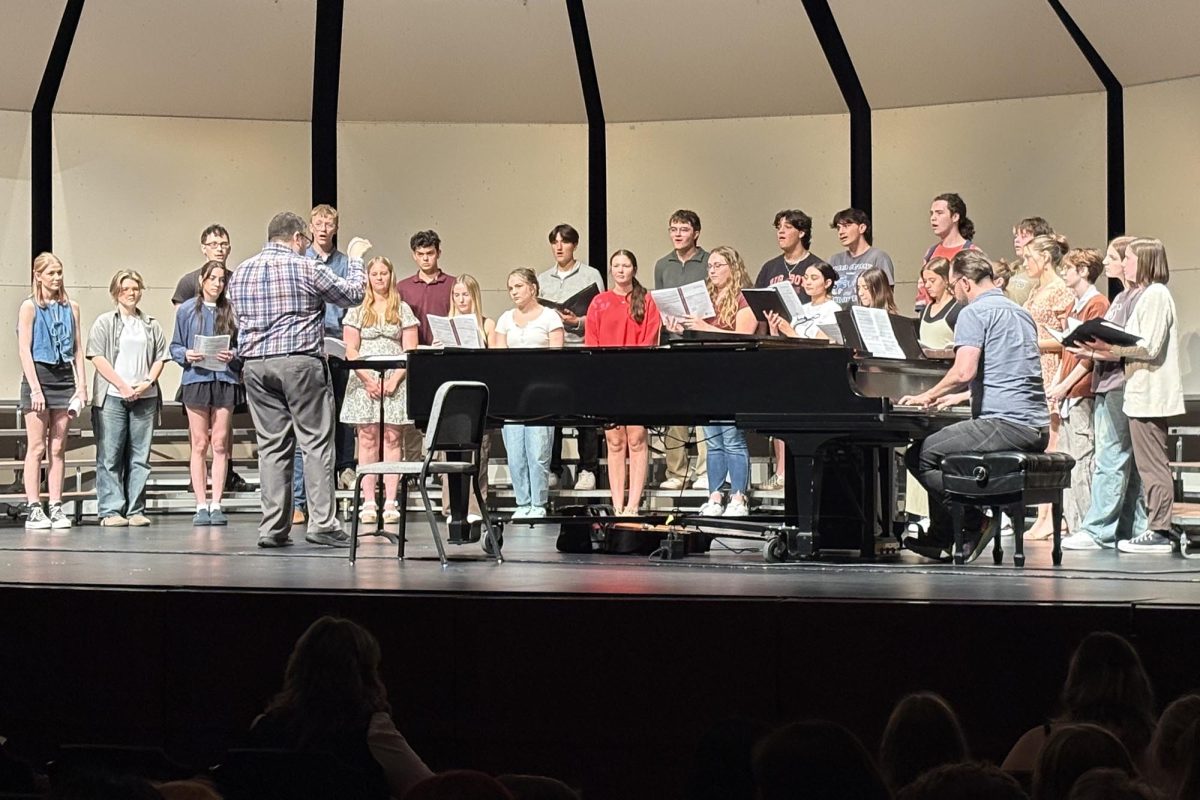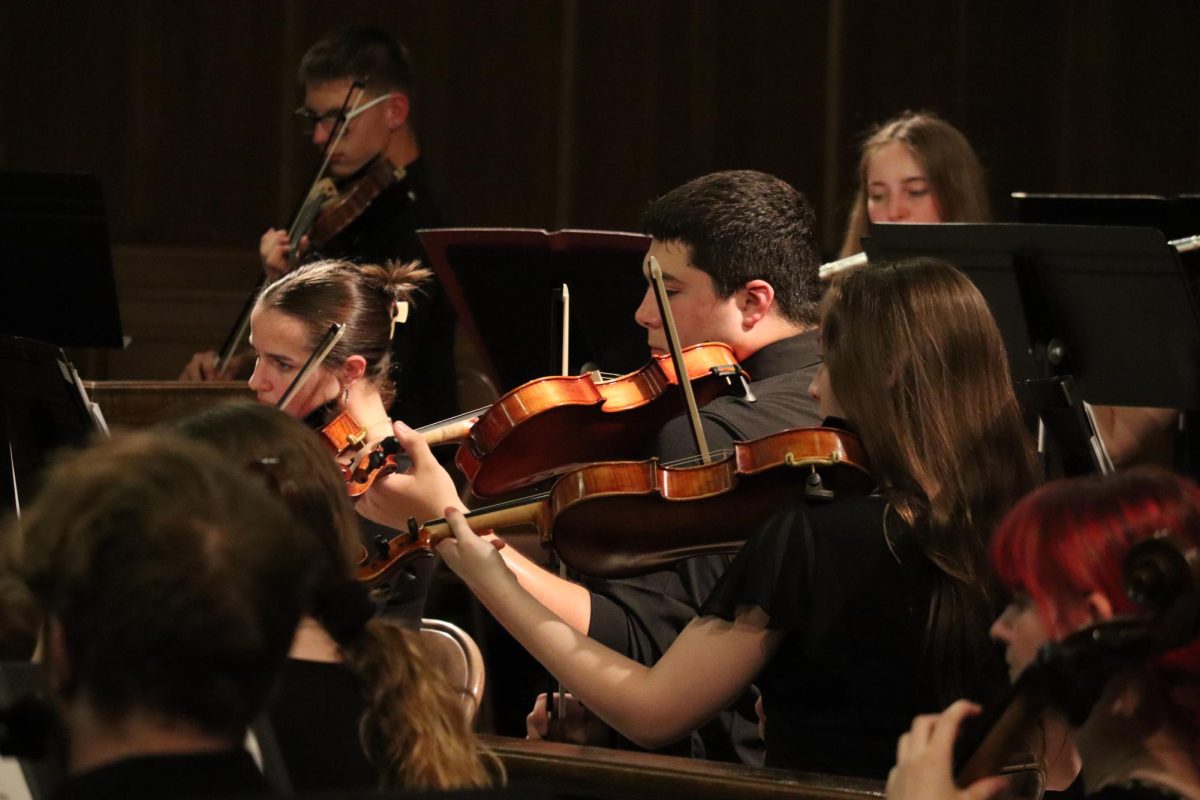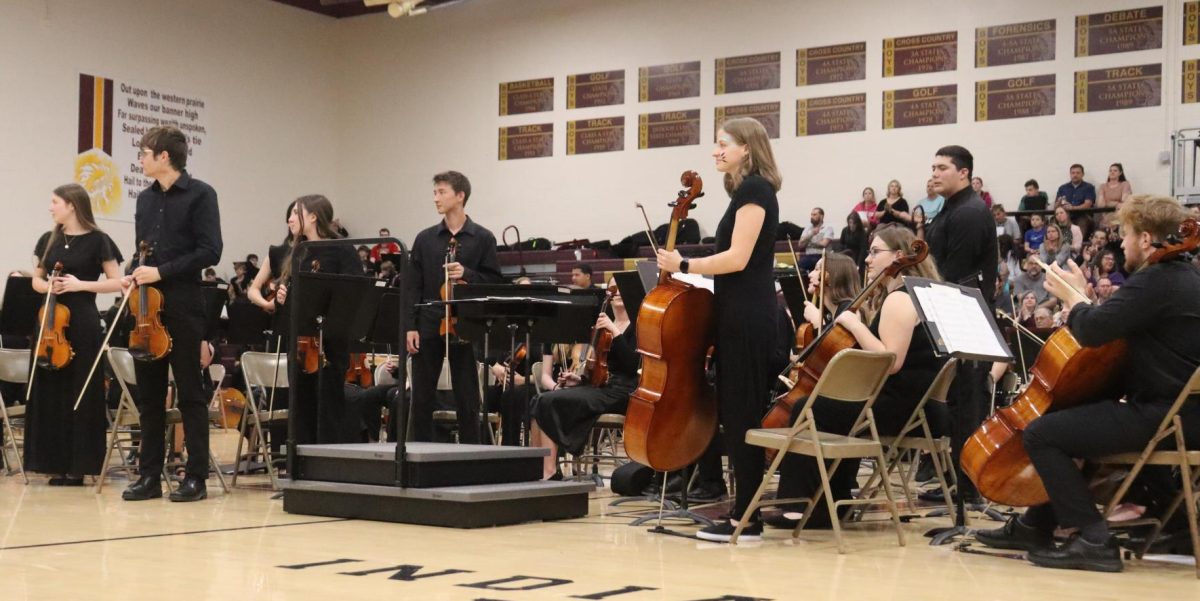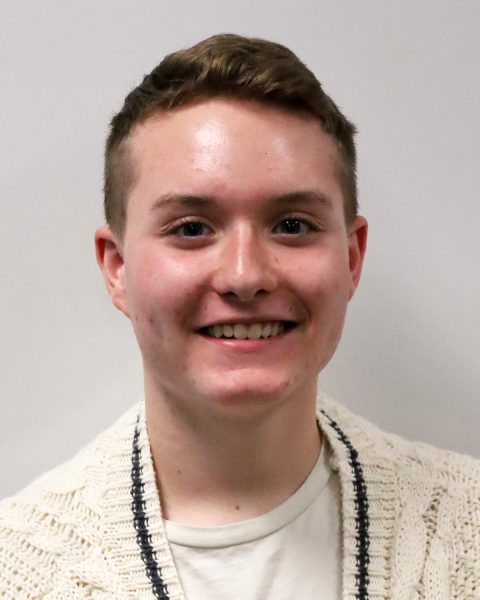While the Freshmen Success Seminar is required, the other electives include Business Communications and Business Law in the Business Department; Baking and Pastry I and Baking and Pastry II in the Family and Consumer Science Department; Contemporary Math in the Math Department; Contemporary Instrumental Music and Philharmonic Orchestra in the Music Department; Lifetime Sports/Activities and Sports Officiating in the Physical Education Department; Anatomy and Physiology, Crime Scene Lab Forensics and Zoology in the Science Department; History in Film in the Social Science Department; and Audio Video Project Management in the Technology Communications Department.
In the Business Department, Business Communications and Business Law were added. In Business Communications, students learn how to better develop an understanding for effective communication and will be practicing most forms of communication in “problem-based projects and real-world applications,” according to the Hays High School Course Career Guide 2024-2025. In Business Law, students cover common legal principles that businesses face and “the development and structure of our legal system through the State, Local and Federal courts,” says the Course Career Guide. Both classes are a semester long and are available for sophomores, juniors and seniors if they have taken Business Essentials as a prerequisite.
“I really like consumer law because, even if you do not go into an area that requires you to have business law as a course, it affects us every day of our lives, whether it be the products that we purchase or our drinking water,” Business Law teacher Shaina Prough said. “I mean, it really does affect us in some way.”
Moving to FACS, Baking and Pastry I & II are the two additional classes in the department. In Baking and Pastry I, students learn “the basics and fundamentals of [the] baking and pastry industry” and apply the fundamentals while baking for the Hays Culinary Arts Kitchen business at the Rockwell Administration Center (RAC) building, according to the Course Career Guide. This course prepares students to join Baking and Pastry II for second semester, here they cover “an advanced look into baking and pastry production [… by using] culinary math, safety and sanitation, and career readiness.” Both additions are available to all grades if students meet the prerequisites.
“We have a lot of things that we do for the school, such as the National Honor Society, the Academic Booster Club, the Athletic Booster Club and some other bigger events around like HaysMed,” teacher Nicole Linenberger said.
The Math Department added one class, Contemporary Math, this year. This course gives students the chance to use different types of math for real-world applications. Juniors and seniors, who have taken Algebra and Geometry, have the opportunity to earn three college credit hours through Fort Hays State University for this semester class.
“This is a relatively new course at FHSU, and when I learned of them having it, I thought it would be great for our HHS students as well,” teacher Jerett Pfannenstiel said.
In the Music Department, two new courses were added, those being Contemporary Instrumental Music and Philharmonic Orchestra. In the audition-only, one-credit Philharmonic Orchestra class, it “gives students the chance to perform medium grade literature in an effective learning environment [… and] to participate in trips and festivals,” according to the Course Career Guide. Contemporary Instrumental Music “will allow students to learn musical instruments such as guitar, electric bass, drums, and keyboard” in a semester setting available to sophomores and older.
“[Philharmonic Orchestra] is our intermediate orchestra that either allows them to continue playing in orchestra if they want or prepares them for Chamber Orchestra if they want to audition into that,” teacher Brayden Smith said.
Lifetime Sports/Activities and Sports Officiating joined the PE Department. In Lifetime Sports/Activities, students learn how to improve their techniques, strategies and sportsmanship in the semester course. In Sports Officiating, students “learn the techniques of how to officiate three separate sports throughout the course of the semester,” says the Course Career Guide. At the end of the semester, students get the chance to become certified as an official in one of the three sports, free of cost.
“The key is to get young officials to know the rules, to be confident and to be able to go to a game and officiate it,” teacher Haley Wolf said. “So, really, it’s just kind of getting young officials certified in different sports that they might be interested in officiating.”
The Science Department gained three new classes, with two of those, Crime Scene Lab Forensics and Zoology, being offered only for odd graduation years. Anatomy & Physiology, a yearlong course for juniors or seniors, allows students to get an understanding “of the relationship between the structures and functions of the human body,” says the Course Career Guide. Crime Scene Lab Forensics looks at some of the most famous crimes in history and uses different tests to solve crimes. Zoology looks at the biology of animal life, including a deep dive into the structure, physiology, development and classification of animals.
“What we’re going to do is break the animal kingdom down into phylums,” teacher Daniel Dickerson said. “Some of the more fun parts of that are we’ll be doing a dissection per phylum. So, we’re going to dissect, like, a starfish, a crayfish, a rat. I feel like that’s going to be really good for the kids to be hands on.”
The Social Science Department welcomed History in Film. In this semester course, students watch six historic films, with the first two picked by the instructor and the other four picked by the students. After choosing the topics students then spend about three weeks on the film. This may include doing background research before watching them to get a better understanding of the content and the context. After watching the film, students “participate in activities that require research, writing, and presentation skills to evaluate the film in comparison to actual events,” according to the Course Career Guide.
“The overriding goal is to get students to look at history that’s being portrayed in films and evaluate the relative effectiveness of that so from two different perspectives,” teacher Paul English said. “One is the history being represented, fair, balanced and accurate, and two is the devices that the director and the production team using. Are they using cinematic techniques to make the audience feel a certain way or provide bias?”
Finally, the Technology Communications Department added Audio Video Project Management. In this yearlong course for juniors and seniors, “students will work in management roles to complete post-production projects for Tribe Broadcasting, as well as individual and community media projects,” says the Course Career Guide.
Teacher Jake Dechant said this class would prepare students for “audio or video because we do everything from live-streaming to post-production stuff. If you’re thinking about being a YouTube or TikTok content creator, it prepares you for that as well.”
For more information on these courses, see the Course Career Guide at https://www.hayshighindians.com/resources/information/courseguide022024_2425.pdf.
27aarias@usd489.com


